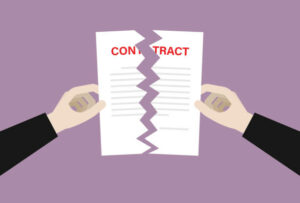
Who Has the Fairest Unfair Dismissal laws?
Who has the fairest unfair dismissal laws is a question I have had in my mind for a while now and thought now we are in lockdown I would do some research
“Equality is not a concept. Its not something we should be striving for. It’s a necessity. Equality is like gravity. We need it to stand on this earth as men and women, and the misogyny that is in every culture is not a true part of the human condition. It is life out of balance, and that imbalance is sucking something out of the soul of every man and woman whos confronted with it. We need equality”
Joss Whedon
Equality is about ensuring that every person, including employees, have an equal opportunity
This belief stands regardless of their upbringing, their beliefs, their background. Or if they have a disability, every employee has the right to go to work without the fear of being treated unfavorably or unfairly. This right stands from the moment they are hired and transpires right through their employment at the company. In the circumstance where an employee may find themselves dismissed or decide to leave their employment they should do so where it is equitable and fair.
Unfair dismissal is when an employee is dismissed from their employment. Alternatively are forced to resign by their employer in an unreasonable manner.
A common cases of unfair / unlawful dismissal is where an employer may dismiss an employee because of a protected attribute, such as their age, race, sex or sexuality.
In Australia, the Fair Work Act 2009 covers the federal industrial relations system and sets out the minimum workplace protections employees and employer obligations. Beneath this Act, an unfair dismissal application can be filed with the Fair Work Commission. Luckily in Australia we have such an Act enacted and employee advocates, such as A Whole New Approach, who assist employees fight for their rights. However, what about those countries who do not have such laws protecting employees from being unfairly dismissed?
Specific dismissal rules
In Deloitte Legal Perspective’s (2018) global study into the specific dismissal rules of 45 countries. Their compliance formalities found that in over 75% of these surveyed countries, an employer is free to dismiss an employee. However they must reinstate this employee where the dismissal reasons are deemed unjustified. Where upfront approval is only required by the Netherlands and Ecuador. A common ground of protection against these dismissal was found within certain categories of employees. Such as pregnancy, was present in almost all countries.

Dangerous and absolute power
Shockingly in a number of other countries, the employer is left with the dangerous and absolute power to dismiss an employee. This is without any possibility of reinstatement. In almost all these countries, the length of service within a certain company is the key factor in determining the level of dismissal cost with a capped notice period and/or severance. In Brazil, Colombia and Ecuador countries, termination is only possible for the reasons stipulated or prohibited by the law. Where this notice period and/or severance is not required.
Those counties in the European Union have employment laws that protect the rights of their workers, and include:
• Working time, part-time and fixed-term work.
• Protection from discrimination and equal pay rights.
• Consultation with employees on workplace matters, such as redundancy.
• Protection of employee’s rights and personal data.
However, these employment laws remain silent upon unfair dismissals. Leaving us with the question of which country has the most equitable unfair dismissal laws? If any at all, and what this means for employees rights.
In Greece, the rules and laws that govern their employees is based upon the distinction between ‘white-collar worker’ and ‘blue-collar worker’. White-collar employees stereotypically are suit-and-tie employees, who work at a desk and perform more intellectual work. Meanwhile, blue-collar employees stereotypically refer to those engaging in hard manual labor.

Employment contract
Where beneath this system, the employment contract for a white-collar worker is for an indefinite period, which may be terminated by the employer at any time through paying notice in lieu and/or a notice period. However, if this employee has not been with the company for more than 12 months no notice in lieu and/or a notice period is required.
In comparison, while the employment contract for a blue-collar worker is also for an indefinite period it can be terminated by the employer at any time through paying notice in lieu. No notice period is required.
“The flaw in our character is our insistence on separating blue-collar jobs from white-collar jobs, and encouraging one form of education over another” – Mike Rowe.

Australian award system
In Australia we have an Award (modern awards) system to which is a legal document that outlines the minimum pay rates and conditions of employment dependent on the industry they work in and the type of job they work. The key difference here is that we do not discriminate based upon this ‘white-collar worker’ and ‘blue-collar worker’ stereotype. Where historically these stereotypes have implied higher and lower social classes between the two, as it is often presumed that white-collar employees have a higher level of education and skills due to the nature of their work. For the foundations of an employment system to be based upon these stereotypes and presumptions alone is an injustice.
These indefinite term employment contracts do not set a time period for the life of the contract or a procedure for the dismissal or termination.
Quite often when an individual lands a new job, its extremely exciting for them as comes new responsibilities and experiences. Now imagine landing a job that does not have a specific date or timeline when the employment relationship is to end. A job that could last forever, sounds ideal right? Wrong.
According to Greek law, the only specific dismissal protections an employee is entitled to are for the following employees:
• Unions’ founding memers and current union officials;
• Disabled employees;
• Vacation leave period;
• Pregnant womens;
• Employees, who have been conscripted for military service
Furthermore, not only are these protections very limited but it is not necessary for the employer to give reason for the termination of an employee on an indefinitie term contract. Therefore leaving many Greek citizens left unemployed without any reason as to why by there employer.
High unemployment
No doubt this is the reason why Greece reports the highest unemployment rate of all EU states. Where Statista (2020) reported that in 2019, the unemployment rate in Greece was around 17.24 percent. In fact, Greece is ranked on top of all countries in the European Union with the highest debt-to-GDP ratio. As a result, Greece has had financial assistance from several countries to decrease their national debt and increase productivity. Although the country has seen a significant improvement in their rates of unemployment, to which Statista (2020) reported were a shocking 27.47 percent back in 2013. However regardless of this improvement, this serious issue of unemployment in Greece is still in existence and is actively affecting the economy.
Perhaps if Greece had fairer employment laws requiring employers to give reason as to terminate their employees, the unemployment rate would be much lower.

Dismissal Laws in France
French Law prescribes that in order for a dismsal to be valid it must be based on a real and serious cause to which must be exact, precise, objective and of a serious nature to justify the dismissal.
In France, there are two types of dismissals
• Dismissal for individual reasons, such as for misconduct or poor performance.
• Dismissal for economic reasons, such as those unrelated to the dismissed employee and results from job cuts, job transformation or a change in the employees employment contract to which they refuse. These changes may arise from economic difficulties, technological changes and other uncontrollable factors.
When a permanent employment contract has been terminated by the employer, a notice period must be served by the employee. However, the employer may choose to release the employee from this notice period through payment in lieu of notice. However, in a case of dismissal for serious or gross misconduct this is not required.
Wishes to dismiss an employee
Where an employer wishes to dismiss an employee, they must comply with the specific rules and procedures including:
• The employer must invite the employee that they wish to dismiss to attend a preliminary meeting by a registered letter.
• This letter must inform the employee that they may be assisted during this meeting by an employee of the company.
• During this meeting, the employer must clearly inform the employee that their dismissal is under consideration and the reasons as to why.
• In the circumstance that the employee is terminated, they must be notified of their dismissal by a registered letter and acknowledgement of receipt.
The onus is on the employer to prove the seriousness of the grounds and reason for the dismissal, based upon material evidence. Any kind of dismissal must be based upon a real and serious reasons, or as they say in France. If the employer is unable to provide this evidence, the employees dismissal will be granted as unfair.

Dismissal protections
According to French law, the only specific dismissal protections an employee is entitled to are for the following employees
• Staff representatives;
• Former staff representatives;
• Employees appointed by a trade union or from a company;
• Pregnant women;
• Disabled employees;
• Employees elected to local, national or EU elections.
Where this dismissal is deemed as unfair, employees are entitled to damages depending on the loss suffered. Where the minimum amount of compensation is set at six months salary for employees with at least two years service. With no maximum prescribed by law.
There is no doubt that France’s rules of unfair dismissal are rather strict and rely heavily upon the employer providing evidence as to why they terminated the employee. Although this may seem advantageous, as it requires an employer to evidentially show cause. It adversely makes it near impossible for an employer to dismiss an employee.
Cannot dismiss an employee
Quite often employers are left in a position where an employee may be underperforming or engaged in an act of serious misconduct. However, they do not have the factual evidence to demonstrate this because of rules governing the admissibility of evidence. Such as here say not being allowed, or perhaps a witness who also was an employee being afraid to testify against another colleague. Thus, making it near impossible for employers to terminate employees, these French laws that require such an objective and exact test.
Interestingly, Macrotrends (2020) reported that in 2019, the unemployment rate in France was 8.43%. Although this is not as large as Greece, they are still rather high. Thus, perhaps if the French unfair dismissal laws allowed for employers to get rid of employees who do not deserve to be in the role, and instead gave the opportunity for those who do this rate would be much lower.

Unfair Dismissal Laws in Australia
In Australia, an employee who feels as though they have been unfairly dismissed can make a claim and take action beneath the Fair Work Act 2009. Once an unfair dismissal application has been filed, the Fair Work Commission deals with the matter.
A person can only make an unfair dismissal claim if they are covered by a Modern Award or if an enterprise agreement applies to them and have completed the minimum employment period. To which is one year for employees of a small business (ie a business with less than 15 employees) or six months for an employer who is not a small business.
The Fair Work Commission will be satisfied an employee has been unfairly dismissed where
• The employee has been dismissed;
• The dismissal was harsh, unjust or unreasonable;
• The dismissal was not a case of genuine redundancy;
• The dismissal was not consistent with the Small Business Fair Dismissal Code, if the employer is a small business.
Unfair dismissal claims
Unfair dismissal claims initially begin as a telephone conciliation conference between the employer, the dismissed employee and any of the parties representatives. If unsuccessful, the claim will be heard before a member of the Fair Work Commission in an arbitration hearing. To whom will decide whether this dismissal was ‘harsh, unjust or unreasonable’.
The Fair Work Commission will look at a number of criteria when considering whether a dismissal was harsh, unjust or unreasonable, including the following:
• Whether there is a valid reason for the dismissal of the employee, which is related to their capcity or conduct;
• Whether the employee was notified of this reason;
• Any unreasonable refusal by the employer to allow the employee to have a support person present at any discussions relating to the dismissal;
• If the dismissal was related to unsatisfactory performance by the employee. Whether the employee was warned by their employer about that unsatisfactory performance before the dismissal;
• Any other matters the Fair Work Commission finds relevant.
Unfair dismissal remedies
If an employee has been found to have been unfairly dismissed, remedies will be available including
• Reinstatement;
• Compensation (capped at 26 weeks pay);
• Non financial remedies (such as a statement of service).
In Australia, it is necessary for employers to ensure employees are provided procedural fairness when dismissing employees. There is no doubt that Australia has a fair and just protection for employees through the Fair Work Act 2009. To which no employer cannot dismiss an employee for a prohibited reason. Unlike in Greece where no reason needs to be provided for those on indefinite employment contracts. Yet, these rules and laws are not as challenging and harsh compared to France where it is near impossible for an employer to dismiss an employee. Thus, explaining why the Australian Bureau of Statistics (2019). Reported in 2019, Australia has the lowest unemployment rate out of all these countries at a steady 5.3 percent.

If you have received notice from your employer that your employment has been terminated. Or you have been forced to resign, you should seek independent advice as you may be able to make an unfair dismissal claim against your previous employer.
Who Has the Fairest Unfair Dismissal laws?
At “A Whole New Approach”, we believe all employees have the right to be treated with the fairness and justice they deserve. This right stands regardless of their upbringing. Their beliefs, their background or because of their sex, race, age or another protected attribute. Every employee has the right to go to work without the fear of being treated unfavorably or unfairly. This stands from the moment they are hired all the way through the ceasing of their employment at that company.
When an employee believed they have been dismissed without a valid reason. Or without procedural fairness we fight for their rights. To which we have over 20 years experience in lodging Unfair Dismissal Applications to the Fair Work Commission. Ensuring our clients obtain the settlement they deserve.
Potential unfair dismissal application
If you would like to discuss a potential application, or for advice please call A Whole New Approach. We are not lawyers, but the nations leading workplace advisors. Non genuine redundancies, workplace investigations, unwarranted warnings, anything to do with the workplace, call us. All Fair work Australia matters, anything to do with workers rights or employment rights, give us a call. For a free advice, prompt, honest approach to your issues, call on 1800 333 666
Please keep in mind an application of unfair dismissal must be lodged within 21 days of your dismissal. Don’t wait until the last moment to fight for your rights as an employee, as it may be too late. We work in all states, Victoria, NSW, Qld, TAS, SA, WA, NT.
“The only impossible journey is the one you never begin” – Tony Robbins
Articles similar to Who Has the Fairest Unfair Dismissal laws
Important to have representation
Constructive dismissal for employees narrative or criticism






